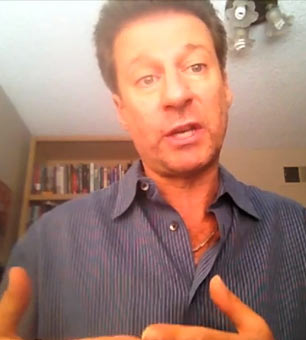 Professor William I. Robinson. (Screengrab: Truthout)Ted Asregadoo speaks to Professor William I. Robinson about his six-month ordeal defending his right to academic freedom and free speech against a coalition of groups that comprise part of the Israel lobby in the US.
Professor William I. Robinson. (Screengrab: Truthout)Ted Asregadoo speaks to Professor William I. Robinson about his six-month ordeal defending his right to academic freedom and free speech against a coalition of groups that comprise part of the Israel lobby in the US.
Also see: As Repression Escalates on US Campuses, an Account of My Ordeal With the Israel Lobby and UC
The ongoing battle between the Israeli government and Hamas in the Gaza strip is a humanitarian crisis that much of the world recognizes, but few in the United States dare speak of. Those who accuse Israel’s government of war crimes, advocate divesting from the country’s economic sector or highlight the utter brutality Israel’s military inflicts on Palestinians in Gaza City often come under attack for voicing their views. William I. Robinson is one of those people. He is a professor of sociology at U.C. Santa Barbara, and five years ago when Israel launched Operation Cast Lead in Gaza City, Professor Robinson wanted to discuss the incursion in one of his classes. He put together some newspaper articles and a photo essay and sent it to his students as part of the course’s optional reading list for a class meeting. Two of his students launched a formal complaint about the optional readings, claiming that Robinson violated the Faculty Code of Conduct was guilty of anti-semitism.
The uniqueness of this case is that the charges leveled at Robinson were part of a coordinated effort by the Israel lobby in the US to get him fired. Moreover, the influence of the lobby went beyond an external pressure group to one where members of the university faculty and administration were actively working with the lobby to get Robinson to “repent” (a word they used) or terminate his employment with the university. There were secret meetings, trumped up charges, and intimidation efforts to silence Robinson – and if it had been for the efforts of colleagues, faculty, and students, the Israel lobby might have succeeded in getting Robinson fired or forcing his resignation.
Robinson’s ordeal is one that highlights the McCarthy-like tactics the lobby uses to silence Israel’s critics, but it’s also the story of how democratic efforts can repel the chilling effect these tactics have in universities, the media and even in the political realm.
Angry, shocked, overwhelmed? Take action: Support independent media.
We’ve borne witness to a chaotic first few months in Trump’s presidency.
Over the last months, each executive order has delivered shock and bewilderment — a core part of a strategy to make the right-wing turn feel inevitable and overwhelming. But, as organizer Sandra Avalos implored us to remember in Truthout last November, “Together, we are more powerful than Trump.”
Indeed, the Trump administration is pushing through executive orders, but — as we’ve reported at Truthout — many are in legal limbo and face court challenges from unions and civil rights groups. Efforts to quash anti-racist teaching and DEI programs are stalled by education faculty, staff, and students refusing to comply. And communities across the country are coming together to raise the alarm on ICE raids, inform neighbors of their civil rights, and protect each other in moving shows of solidarity.
It will be a long fight ahead. And as nonprofit movement media, Truthout plans to be there documenting and uplifting resistance.
As we undertake this life-sustaining work, we appeal for your support. Please, if you find value in what we do, join our community of sustainers by making a monthly or one-time gift.